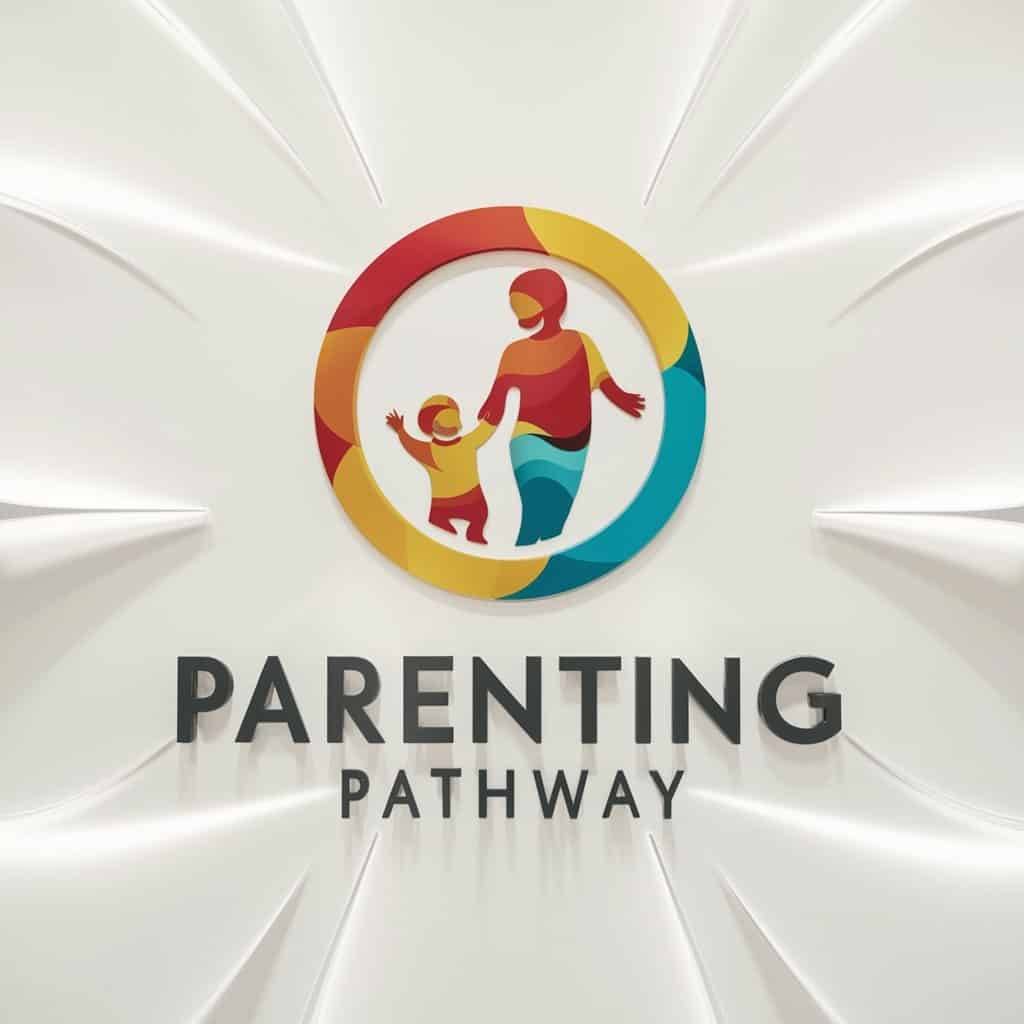What Is The Role Of A Developmental Psychologist In Children’s Growth?
Back to Blog
The Core Responsibilities of Developmental Psychologists in Understanding Child Growth
Developmental psychologists play a crucial role in understanding and supporting children’s growth, offering deep insights into the complex journey of human development. These specialized professionals dedicate their careers to examining how children learn, think, interact, and develop across various stages of life.
Understanding Cognitive and Emotional Development
At the core of a developmental psychologist’s work is the comprehensive analysis of children’s cognitive and emotional progression. They meticulously observe how children acquire skills, process information, and develop critical thinking abilities. By studying developmental milestones, these experts can identify potential challenges or exceptional capabilities in children’s mental growth.
Key Assessment Methods
- Standardized cognitive assessment tools
- Behavioral observation techniques
- Interactive developmental screening
- Longitudinal research studies
Identifying Developmental Challenges
Developmental psychologists are trained to recognize early signs of potential developmental disorders or learning difficulties. Their expertise allows them to differentiate between typical developmental variations and situations requiring specialized intervention. Through detailed assessments, they can recommend targeted support strategies for children who might be experiencing developmental delays.
Critical Areas of Intervention
- Autism spectrum disorders
- Learning disabilities
- Attention deficit disorders
- Social interaction challenges
Supporting Emotional Intelligence and Social Skills
Another significant responsibility involves nurturing children’s emotional intelligence and social skills. Developmental psychologists help children understand and manage their emotions, develop empathy, and create healthy interpersonal relationships. They work closely with parents, educators, and caregivers to create supportive environments that encourage positive emotional growth.
Emotional Development Strategies
- Teaching emotional regulation techniques
- Developing communication skills
- Building self-confidence
- Encouraging positive social interactions
Research and Understanding Developmental Patterns
Scientific research forms a fundamental aspect of a developmental psychologist’s work. By conducting extensive studies, they contribute to our broader understanding of human development. These professionals analyze how genetic, environmental, and social factors influence children’s growth, helping create more effective educational and parenting approaches.
Collaboration with Interdisciplinary Teams
Developmental psychologists rarely work in isolation. They frequently collaborate with pediatricians, educators, speech therapists, and other professionals to provide comprehensive support for children’s development. This multidisciplinary approach ensures that children receive holistic care addressing their cognitive, emotional, and social needs.
Collaborative Intervention Approaches
- Individualized education planning
- Family counseling
- School-based support programs
- Early intervention strategies
Professional Impact and Societal Contribution
The work of developmental psychologists extends beyond individual interventions. Their research and insights contribute to broader educational policies, parenting guidelines, and social support systems. By understanding the intricate processes of child development, they help create more nurturing and effective environments for children to thrive.
Through their dedicated research, assessment, and intervention strategies, developmental psychologists serve as essential guardians of children’s growth. Their comprehensive approach ensures that every child receives the support needed to reach their full potential, addressing unique developmental challenges with compassion and scientific expertise.
Stages of Child Development: Tracking Milestones and Psychological Progress
Understanding child development is crucial for parents, educators, and healthcare professionals to support healthy psychological growth. Each child follows a unique developmental trajectory, characterized by significant physical, cognitive, emotional, and social transformations throughout their early years.
Foundational Psychological Progression
Child development involves intricate psychological processes that unfold systematically from infancy through adolescence. Developmental psychologists play a pivotal role in tracking and understanding these complex progressions, analyzing how children acquire skills, adapt to environments, and develop critical social-emotional competencies.
Critical Developmental Domains
Children’s growth encompasses multiple interconnected domains that contribute to their overall psychological maturation:
- Cognitive development: Learning, problem-solving, and intellectual capabilities
- Emotional regulation: Understanding and managing feelings
- Social interaction: Building relationships and communication skills
- Physical motor development: Fine and gross motor skill progression
Early Childhood Psychological Milestones
During the first five years, children experience remarkable psychological transformations. Infants develop object permanence, recognize familiar faces, and begin understanding basic emotional responses. Toddlers start exploring independence, expressing preferences, and developing rudimentary language skills.
Key Developmental Markers
Psychologists monitor specific markers that indicate healthy psychological progression:
- Attachment formation with primary caregivers
- Emerging self-awareness
- Basic emotional expression
- Initial problem-solving attempts
Psychological Assessment Techniques
Developmental psychologists utilize specialized assessment methods to evaluate children’s psychological progress. These techniques include standardized tests, observational studies, interactive assessments, and comprehensive developmental screenings that provide insights into individual growth patterns.
Professional Evaluation Components
Professional assessments typically encompass multiple evaluation dimensions:
- Cognitive ability measurements
- Social interaction observations
- Emotional responsiveness analysis
- Language comprehension evaluations
Potential Developmental Challenges
Not all children progress identically, and developmental psychologists are trained to identify potential challenges or delays. Early recognition of psychological variations allows for targeted interventions, supporting children in overcoming potential obstacles and maximizing their developmental potential.
Intervention Strategies
When developmental concerns emerge, professionals might recommend:
- Targeted therapeutic interventions
- Specialized educational support
- Family counseling
- Individualized learning approaches
Holistic Development Perspective
Modern developmental psychology emphasizes a holistic approach, recognizing that psychological growth results from complex interactions between genetic predispositions, environmental influences, and individual experiences. This comprehensive perspective ensures a nuanced understanding of each child’s unique developmental journey.
Parental Role in Psychological Growth
Parents serve as critical facilitators in children’s psychological development. By providing supportive, nurturing environments and engaging in meaningful interactions, caregivers significantly contribute to their children’s emotional and cognitive progression.
Understanding child development requires patience, expertise, and a deep commitment to supporting individual growth trajectories. Developmental psychologists continue to play an essential role in deciphering the intricate mechanisms that shape children’s psychological landscapes.
Assessment Techniques Used by Developmental Psychologists
Understanding Diagnostic Approaches in Child Development
Developmental psychologists employ sophisticated techniques to comprehensively understand children’s cognitive, emotional, and social growth. These assessment methods are crucial in identifying potential developmental challenges, tracking progress, and designing targeted interventions.
Standardized Psychological Testing
Professionals utilize carefully designed standardized tests that measure specific developmental domains. These assessments provide quantitative data about a child’s intellectual capabilities, emotional regulation, and social skills. Intelligence quotient (IQ) tests, developmental screening instruments, and behavioral assessment scales help create a holistic picture of a child’s developmental trajectory.
Observational Research Methods
Direct observation remains a powerful assessment technique. Developmental psychologists meticulously observe children in various settings, including:
- Classroom environments
- Structured play scenarios
- Family interaction settings
- Clinical research spaces
These observations allow professionals to capture nuanced behavioral patterns, social interactions, and adaptive skills that might not be evident through traditional testing methods.
Clinical Interviews and Parent Consultations
Gathering comprehensive background information through detailed interviews with parents, caregivers, and educators provides critical contextual insights. These conversations help developmental psychologists understand:
- Family medical history
- Early childhood experiences
- Potential environmental influences
- Developmental milestones
Such qualitative data complements quantitative assessment results, enabling more accurate developmental evaluations.
Neuropsychological Assessment Techniques
Advanced neuropsychological assessments help identify potential cognitive processing challenges. These sophisticated evaluations examine brain-behavior relationships, investigating how neurological functioning impacts learning, memory, attention, and problem-solving capabilities.
Specialized tests measure executive functioning, processing speed, and cognitive flexibility, providing deep insights into a child’s neurological development.
Longitudinal Research Approaches
Developmental psychologists often conduct long-term studies tracking children’s progress over extended periods. These longitudinal research methods allow professionals to:
- Understand developmental patterns
- Predict potential future challenges
- Monitor intervention effectiveness
- Create personalized developmental strategies
By comparing individual progression against normative developmental benchmarks, researchers gain comprehensive understanding of growth dynamics.
Technological Assessment Tools
Modern developmental psychology incorporates cutting-edge technological tools like computerized cognitive assessments, eye-tracking technologies, and interactive diagnostic platforms. These advanced methodologies provide precise, objective measurements of developmental processes.
Digital assessment tools offer increased accuracy, reduce human bias, and generate detailed performance metrics that traditional methods might overlook.
Culturally Sensitive Evaluation Frameworks
Recognizing developmental diversity, contemporary assessment techniques emphasize cultural contextualization. Psychologists design culturally responsive evaluation frameworks that consider:
- Linguistic variations
- Societal expectations
- Cultural learning styles
- Family interaction patterns
This approach ensures more inclusive and accurate developmental assessments across diverse populations.
Integrative Assessment Strategies
The most effective developmental psychology assessments integrate multiple techniques, creating comprehensive evaluation frameworks. By combining quantitative testing, qualitative observations, technological tools, and contextual understanding, professionals develop nuanced, individualized developmental profiles.
This multifaceted approach allows for precise identification of strengths, potential challenges, and targeted intervention strategies, supporting optimal child development.
Impact of Early Psychological Interventions on Long-Term Child Development
Understanding the profound significance of early psychological interventions can dramatically transform a child’s developmental trajectory. Developmental psychologists play a critical role in identifying and addressing potential challenges that might hinder a child’s cognitive, emotional, and social growth.
Foundations of Psychological Development
Children experience remarkable neurological and psychological changes during their formative years. Early psychological interventions serve as strategic approaches to nurturing healthy developmental patterns, helping children navigate complex emotional landscapes and build resilient psychological frameworks.
Key Intervention Strategies
- Comprehensive behavioral assessments
- Targeted cognitive stimulation techniques
- Emotional regulation skill development
- Family dynamic evaluation and support
Neurological Impact of Early Interventions
Research consistently demonstrates that timely psychological support can reshape neural pathways, enhancing a child’s capacity for learning, emotional processing, and social interaction. By addressing potential developmental challenges early, psychologists can mitigate long-term psychological complications.
Critical Areas of Focus
Developmental psychologists concentrate on several pivotal domains:
- Cognitive skill enhancement
- Emotional intelligence development
- Social interaction optimization
- Behavioral pattern recognition
Personalized Intervention Approaches
Each child represents a unique psychological landscape, requiring customized intervention strategies. Skilled developmental psychologists employ sophisticated assessment tools to craft individualized support plans that address specific developmental needs.
Assessment Methodologies
Professional psychological evaluations typically involve:
- Standardized developmental screening tests
- Comprehensive observational studies
- Interactive diagnostic play sessions
- Parental and educator collaborative interviews
Long-Term Developmental Outcomes
Early psychological interventions can significantly influence a child’s future academic performance, emotional stability, and social competence. By identifying and addressing potential developmental challenges proactively, psychologists help children build robust psychological foundations.
Potential Benefits
Children who receive timely psychological support often experience:
- Enhanced academic adaptability
- Improved emotional regulation
- Stronger interpersonal communication skills
- Increased self-confidence and resilience
Collaborative Intervention Strategies
Effective psychological interventions require a holistic approach involving multiple stakeholders. Developmental psychologists collaborate closely with parents, educators, and other healthcare professionals to create comprehensive support ecosystems for children.
Interdisciplinary Coordination
Successful intervention models integrate perspectives from:
- Educational specialists
- Pediatric healthcare providers
- Family counseling experts
- Neurological development researchers
Technological Advancements in Developmental Psychology
Modern developmental psychology leverages cutting-edge technologies like neuroimaging and advanced diagnostic tools to provide more precise and effective interventions. These technological innovations enable psychologists to develop increasingly sophisticated understanding of childhood psychological development.
By recognizing the intricate connections between early experiences and long-term psychological outcomes, developmental psychologists play an instrumental role in supporting children’s holistic growth and potential.
Collaborative Approaches Between Developmental Psychologists and Families
Understanding child development requires a holistic approach that goes beyond professional expertise. Developmental psychologists recognize that families play a critical role in supporting a child’s growth and emotional well-being. By establishing strong collaborative partnerships, these professionals can create comprehensive support systems that nurture children’s potential.
Effective collaboration begins with open communication and mutual respect between developmental psychologists and family members. This partnership allows for a deeper understanding of the child’s unique background, experiences, and individual needs. Psychologists bring scientific knowledge and assessment tools, while families provide invaluable insights into the child’s daily experiences and personal context.
Key Strategies for Collaborative Intervention
- Developing personalized assessment frameworks
- Creating targeted intervention plans
- Establishing consistent communication channels
- Sharing observational data and developmental insights
- Implementing home-based support strategies
Families serve as primary advocates and support systems for children’s developmental journeys. Developmental psychologists work closely with parents and caregivers to understand family dynamics, cultural backgrounds, and specific challenges that might impact a child’s growth. This collaborative approach ensures that interventions are not just scientifically sound but also culturally sensitive and contextually appropriate.
Assessment and Supportive Techniques
Professional psychologists employ various assessment techniques that involve active family participation. These may include structured interviews, observation sessions, and collaborative goal-setting meetings. By integrating family perspectives, psychologists can develop more comprehensive and effective developmental strategies.
Technology has significantly enhanced collaborative approaches in recent years. Digital platforms now enable more frequent and convenient communication between developmental psychologists and families. Video consultations, shared digital journals, and secure messaging systems allow for real-time updates and continuous monitoring of a child’s progress.
Empowering Families Through Knowledge
A critical aspect of collaborative approaches involves educating families about developmental milestones, potential challenges, and supportive techniques. Psychologists provide workshops, resources, and personalized guidance that help parents understand their child’s unique developmental trajectory.
Training family members in specific intervention strategies becomes an essential component of the collaborative process. This might include teaching communication techniques, behavioral management strategies, or specialized learning approaches tailored to the child’s specific needs.
Addressing Complex Developmental Challenges
Some children require more intensive support, particularly those experiencing developmental delays, neurodevelopmental disorders, or complex psychological challenges. In such scenarios, collaborative approaches become even more crucial. Developmental psychologists work alongside families to create comprehensive support networks that might include additional professionals like speech therapists, occupational therapists, and educational specialists.
Cultural competence plays a significant role in these collaborative efforts. Psychologists must recognize and respect diverse family structures, cultural beliefs, and individual approaches to child-rearing. This sensitivity ensures that interventions are respectful, inclusive, and aligned with the family’s values and expectations.
Long-Term Benefits of Collaborative Approaches
The most significant advantage of collaborative partnerships is the potential for sustained, positive developmental outcomes. When families and developmental psychologists work together seamlessly, children receive consistent, holistic support that addresses their emotional, cognitive, and social development.
By fostering strong, transparent relationships built on trust and mutual understanding, developmental psychologists can help families navigate complex developmental journeys with confidence and hope. The ultimate goal remains supporting each child’s unique potential and promoting healthy, adaptive growth.
Key Takeaway:
Key Takeaway: The Crucial Role of Developmental Psychologists in Nurturing Child Growth
Developmental psychologists play a pivotal role in understanding and supporting children’s psychological and emotional development, serving as critical navigators through the complex journey of childhood growth. Their work extends far beyond simple observation, encompassing a comprehensive approach to tracking, understanding, and enhancing children’s psychological well-being.
At the heart of their practice lies a deep commitment to understanding the intricate stages of child development. These professionals meticulously track developmental milestones, recognizing that each child’s growth is a unique trajectory influenced by multiple factors including genetic predispositions, environmental interactions, and individual experiences. By carefully assessing cognitive, emotional, social, and physical development, they provide invaluable insights into a child’s psychological progress.
The assessment techniques employed by developmental psychologists are sophisticated and multifaceted. They utilize a range of tools including standardized psychological tests, observational studies, interviews with parents and caregivers, and detailed behavioral assessments. These methods allow them to create a holistic understanding of a child’s developmental landscape, identifying potential challenges or areas of strength with remarkable precision.
Perhaps most critically, these professionals understand the transformative power of early psychological interventions. Research consistently demonstrates that timely and targeted psychological support can significantly impact a child’s long-term developmental outcomes. By identifying and addressing potential developmental delays, emotional challenges, or learning difficulties early, developmental psychologists can help children build resilience, develop coping mechanisms, and unlock their full potential.
The collaborative approach is another hallmark of their practice. Developmental psychologists work closely with families, educators, and other healthcare professionals to create a supportive ecosystem around the child. This holistic approach ensures that psychological insights are translated into practical strategies that support the child’s growth across different environments.
Key takeaways highlight that developmental psychologists are not just observers but active architects of children’s psychological well-being. They combine scientific expertise with compassionate understanding, helping children navigate the complex journey of growth and development. Their work is fundamental in ensuring that children develop the psychological tools necessary to thrive, adapt, and reach their full potential.
By providing comprehensive support, early intervention, and personalized strategies, developmental psychologists play an indispensable role in supporting children’s psychological health and overall development. Their expertise offers a beacon of support for families, helping to transform potential challenges into opportunities for growth and learning.
Conclusion
Developmental psychologists play a pivotal role in nurturing children’s holistic growth, serving as critical guides in understanding the intricate journey of human development. By meticulously tracking psychological milestones, employing sophisticated assessment techniques, and implementing targeted interventions, these professionals create transformative pathways for children’s emotional, cognitive, and social advancement.
The profound impact of their work extends far beyond immediate psychological support. Through collaborative partnerships with families and comprehensive developmental strategies, they help children build resilient foundations that can positively influence lifelong outcomes. Each assessment, intervention, and supportive interaction contributes to a child’s potential for healthy psychological development.
Recognizing the complexity of child growth, developmental psychologists integrate scientific knowledge with compassionate understanding. Their expertise allows them to identify potential challenges early, design personalized support strategies, and empower children to navigate developmental stages with confidence and strength.
Families benefit tremendously from this professional guidance, gaining insights into their child’s unique psychological landscape and learning evidence-based approaches to support developmental progress. The synergy between psychological professionals and families creates a nurturing ecosystem that promotes optimal child development.
As our understanding of human psychology continues to evolve, developmental psychologists remain at the forefront of championing children’s psychological well-being. Their dedicated work ensures that each child receives the specialized support needed to thrive, transform potential challenges into opportunities for growth, and build a strong psychological foundation for future success.
The commitment of developmental psychologists represents a beacon of hope and strategic intervention in supporting the next generation’s psychological health and potential.




Leave a Reply